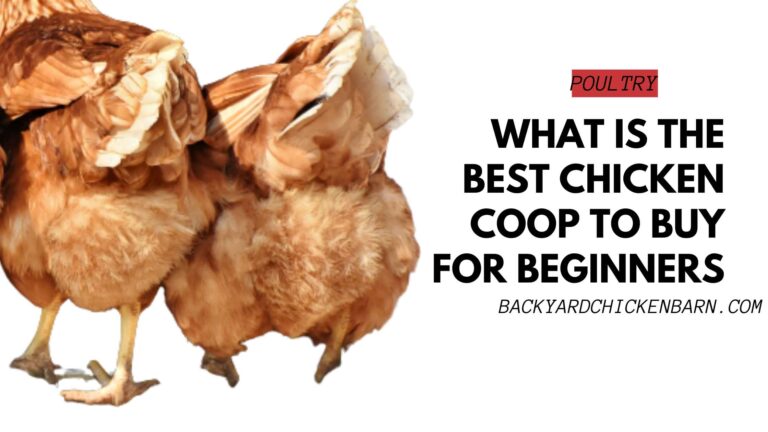Difference between Broiler and Noiler
A broiler is a type of chicken specifically bred and raised for meat production, usually ready for market in about 6-8 weeks. On the other hand, a noiler is a crossbreed, the result of breeding broilers and local chickens, which offers a blend of the meaty benefits of broilers and the resilience of local chickens.
A Deeper Dive into Broilers: Broilers are the heavyweight champions of the poultry world. With their primary purpose being meat production, they are genetically designed to grow rapidly.
Their fast growth rate is both a boon and a bane. While it makes them efficient for farming, it can also make them susceptible to health issues if not raised under optimal conditions.
The specificity of their breeding has tailored them to be robust in terms of meat yield, but this also means they might require more intensive care compared to other chicken breeds.
Understanding Noilers: Noilers offer an innovative solution to some challenges faced by broilers. By crossbreeding broilers with local or indigenous chicken breeds, noilers inherit the resilience and hardiness of local breeds while still retaining a good meat yield.
This makes them more adaptable to various environments, reducing the need for intensive care. They might not grow as rapidly as broilers, but they bring in a balance between production efficiency and adaptability.
Why the Distinction Matters: For farmers, understanding the difference can guide decisions on which breed to raise depending on their resources, environmental conditions, and market demands.
While broilers might offer a quicker turnover, noilers could be a more sustainable option, especially in regions with challenging environmental conditions.
Conclusion:
In the vast world of poultry, the choice between broilers and noilers mirrors the decisions I often encounter in computational linguistics: seeking efficiency versus versatility.
As with algorithms and semantics, it’s essential to understand the underlying nuances to make informed choices. In poultry, knowing the distinction between broilers and noilers helps in determining the best fit for a farmer’s specific needs.
FAQS
1. What was the main topic of the article? The article primarily focused on understanding the differences between broilers and noilers in poultry farming.
2. How are broilers primarily described? Broilers are described as chickens specifically bred and raised for meat production.
3. How long does it typically take for broilers to be ready for the market? Broilers are usually ready for market in about 6-8 weeks.
4. What is a noiler? A noiler is a crossbreed resulting from the breeding of broilers and local chickens.
5. How do noilers differ in growth compared to broilers? Noilers might not grow as rapidly as broilers, but they offer a balance between production efficiency and adaptability.
6. What are the advantages of breeding noilers? Noilers are more adaptable to various environments and are a blend of the meaty benefits of broilers and the resilience of local chickens.
7. Are broilers more susceptible to health issues? Yes, due to their rapid growth rate, broilers can be susceptible to health issues if not raised under optimal conditions.
8. Why might farmers choose to raise noilers? Farmers might choose noilers for their adaptability to different environments and their balance between meat yield and resilience.
9. What’s the primary purpose of raising broilers? The primary purpose of raising broilers is meat production.
10. Do noilers require intensive care like broilers? No, noilers are more resilient and adaptable, reducing the need for as intensive care as broilers.
11. How do broilers and noilers relate to computational linguistics, as per Dr. Serena Webvise? The choice between efficiency (broilers) and versatility (noilers) in poultry mirrors decisions in computational linguistics.
12. Which chicken breed offers a quicker turnover? Broilers offer a quicker turnover due to their rapid growth rate.
13. How can understanding the difference between broilers and noilers benefit farmers? It can guide farmers in making decisions based on their resources, environmental conditions, and market demands.
14. Are noilers genetically modified? Noilers are not genetically modified but are crossbreeds of broilers and local chickens.
15. Why are noilers considered more sustainable in some regions? Noilers can be more sustainable, especially in regions with challenging environmental conditions due to their adaptability.
16. How do broilers achieve their fast growth rate? Broilers are genetically designed to grow rapidly for efficient meat production.
17. Are broilers and noilers the only options for poultry farmers? No, broilers and noilers are just two of the many options available to poultry farmers.
18. What makes noilers hardy and resilient? Noilers inherit the resilience and hardiness of local or indigenous chicken breeds.
19. Is there a compromise in meat yield with noilers compared to broilers? While noilers offer a good meat yield, it might not be as high as that of broilers.
20. Do noilers have a specific market demand? Yes, noilers can cater to markets that value a balance between meat yield and resilience.
21. What is the primary breeding goal for broilers? The primary breeding goal for broilers is to achieve a high meat yield in a short time.
22. How do environmental conditions impact broiler health? Non-optimal environmental conditions can make broilers susceptible to health issues.
23. What challenges do noilers address in the poultry industry? Noilers address the challenges of adaptability and resilience that broilers might lack.
24. Can broilers survive in challenging environmental conditions? Broilers might struggle in challenging conditions due to their specific breeding for rapid growth.
25. What do broilers and noilers have in common? Both broilers and noilers are bred for meat production.
26. How do farmers benefit from the adaptability of noilers? The adaptability of noilers reduces the need for intensive care, making them easier to raise in varied conditions.
27. How does the meat yield of broilers compare to other chicken breeds? Broilers have a high meat yield compared to many other chicken breeds.
28. What are the market advantages of broilers? Broilers offer a quick turnover due to their rapid growth, catering to high meat demand.
29. Are noilers a recent development in poultry farming? Noilers are a relatively innovative solution, combining the benefits of broilers and local chickens.
30. Why is it essential to understand the nuances between broilers and noilers? Understanding the nuances helps in making informed choices in poultry farming based on specific needs.
31. Which breed is better for regions with challenging environmental conditions? Noilers are better suited for regions with challenging environmental conditions due to their adaptability.
32. Are noilers more disease-resistant than broilers? Noilers inherit the resilience of local breeds, potentially making them more disease-resistant than broilers.
33. How do broilers and noilers affect profitability for farmers? Broilers might offer quick profits due to rapid growth, while noilers offer sustainability and adaptability, potentially leading to consistent returns.
34. Do broilers and noilers have distinct tastes? While the article doesn’t mention taste differences, meat texture and flavor might vary due to differences in growth and genetics.
35. Which breed is more cost-effective to raise? It depends on the region and available resources; noilers might be more cost-effective in challenging environments, while broilers might be in controlled settings.
36. Can noilers be raised in urban environments? Yes, due to their adaptability, noilers can be raised in various settings, including urban environments.
37. Are broilers and noilers suitable for organic farming? Both breeds can be raised organically, but the specific requirements would differ based on their individual needs.
38. How do broilers and noilers impact the environment? The environmental impact depends on farming practices. Sustainable practices will have a lesser impact regardless of the breed.
39. What are the potential health concerns associated with broilers? Due to their rapid growth, broilers might face issues like leg problems or cardiovascular diseases if not raised under optimal conditions.
40. Are noilers as popular as broilers in the market? While broilers have been popular for their quick turnover, noilers are gaining traction due to their adaptability and balance between meat yield and resilience.


